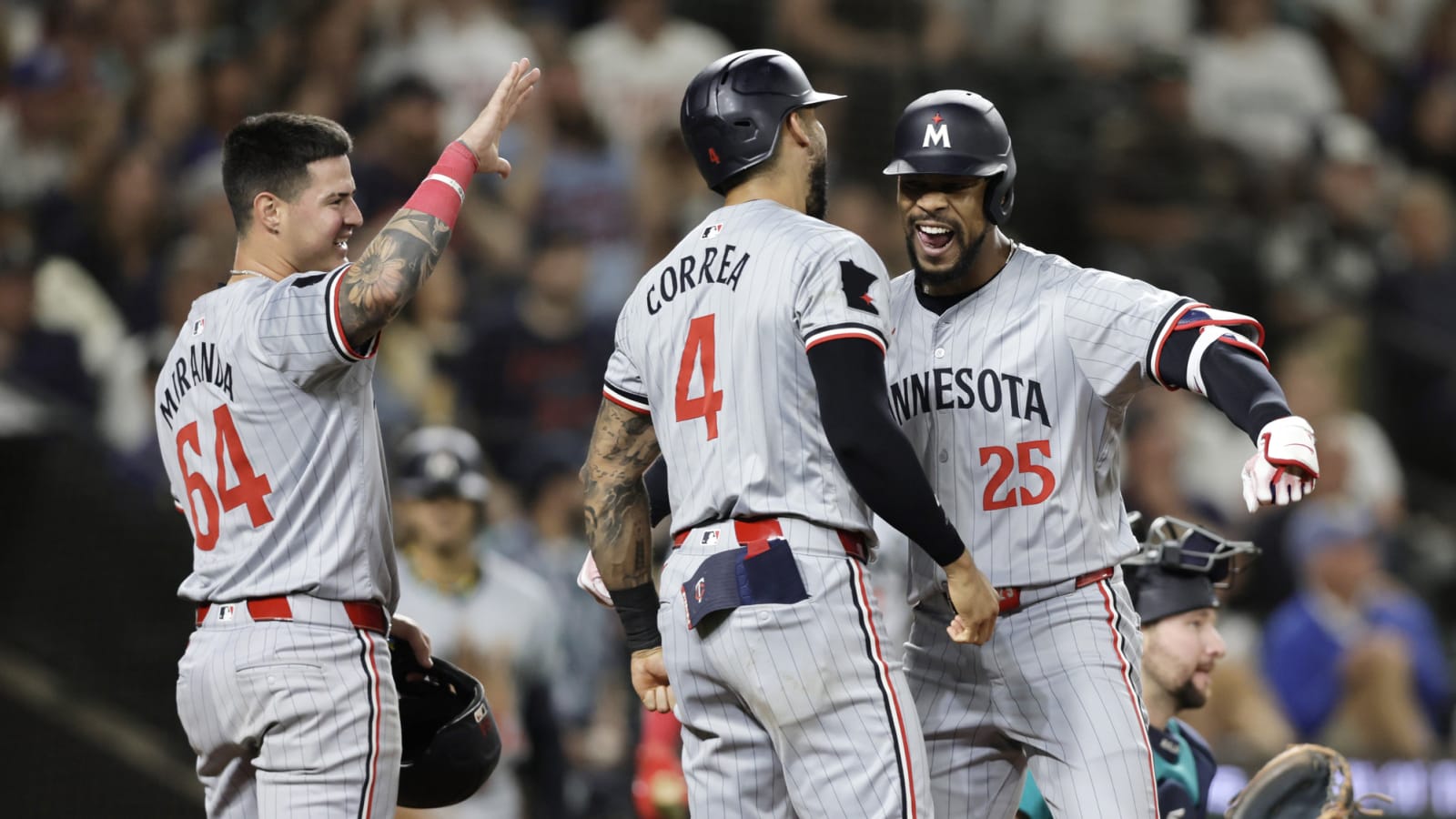
Twins owner Joe Pohlad, grandson of longtime owner Carl Pohlad and nephew of successor Jim Pohlad, announced that his family will begin exploring a sale of the team. The Pohlad family has owned the Twins since 1984 — the third-longest tenure of any ownership group in the sport behind only the Steinbrenner family (Yankees) and Jerry Reinsdorf (White Sox).
“For the past 40 seasons, the Minnesota Twins have been part of our family’s heart and soul,” Pohlad said in Thursday morning’s news release. “This team is woven into the fabric of our lives, and the Twins community has become an extension of our family. The staff, the players, and most importantly, you, the fans — everyone who makes up this unbelievable organization — is part of that."
Pohlad later said that the "objective" was "to find an ownership group who all of us can be proud of and who will take care of the Minnesota Twins."
Carl Pohlad purchased the Twins franchise from former owner Calvin Griffith for a purchase price of $44M back in 1984. Three generations of the family have since spearheaded ownership, with the 42-year-old Joe Pohlad being tabbed as the team’s control person just two years ago. It’s impossible to know precisely how much the Twins might fetch in a sale, but it’ll surely top $1 billion. The Royals ($1 billion), Marlins ($1.2 billion) and Orioles ($1.725 billion) commanded at least that much in their sales within the past half decade. Entering the season, Forbes placed an estimated $1.46 billion value on the Twins — a 5% increase over the prior year.
For a frustrated Twins fanbase, it’s surely welcome news. Ownership drew the ire of Minnesota fans by slashing $30M off the payroll on the heels of the team’s first postseason series win since 2002 just this past offseason. Uncertainty surrounding the television broadcast rights in the midst of Diamond Sports Group’s ongoing bankruptcy proceedings largely fueled that decision, but it was nevertheless a disheartening trajectory for a fanbase that has long voiced frustration with ownership even before that reduction in budget.
The Twins have long resided in the bottom half and frequently the bottom third of Major League Baseball in terms of player payroll. Fans were sold hope that the construction of Target Field, which opened in 2010, would boost spending capacity. It’s technically true that the team’s payroll has risen, but only relative to their prior spending levels and not relative to the rest of the league. The Twins haven’t ranked in the top half of the league in payroll size since 2012, and this past season’s 18th-ranked payroll falls right in line with the same levels they sat at the Metrodome in 2003-09, when their payroll ranked between 18th and 25th in the sport each season (per Cot’s Contracts).
It bears emphasizing that exploring a sale and committing to a sale are not one and the same. Angels owner Arte Moreno and Nationals owner Mark Lerner have both explored the possibility of selling their own clubs in the past two to three years, only to eventually express a change in direction and intent to continue on as the owners of those respective teams. Both of those clubs were purchased by current ownership far more recently, however, and play in much larger markets. That meant loftier sale prices and less potential for return on investment than the Pohlad family stands to make in soliciting bids on a small-market club that was purchased four decades ago for a price smaller than the combined salary of the Twins’ two most-expensive players (Carlos Correa and Pablo Lopez).
For now, the prospect of a sale surely instills a sense of hope in fans but also creates more questions than answers. It’s unclear whether the Twins are wholly committed to selling or simply seeing what the franchise might fetch, nor is it presently known what price they’ll seek or if there’s any sort of deadline after which they’ll stop fielding interest. On a smaller scale, it’s difficult to glean just what a sale of the club might mean for the 2025 roster and payroll. Joe Pohlad had already publicly stated that he did not anticipate further reduction in payroll, though that was before the sale of the club was made public.
It’s also possible, though far from certain, that news of the impending sale process prompted now-former general manager Thad Levine — the team’s No. 2 baseball operations executive behind president of baseball operations Derek Falvey — to step down and seek new opportunities. Levine announced his departure from the club just last week. He did not cite a reason for his decision, but Levine has spoken fondly of the Pohlad family in the past and turned down interview opportunities to interview as a baseball operation leader with other organizations, including the Mets and Phillies. The Rockies were also linked to him before sticking with an internal name and elevating scouting director Bill Schmidt to the GM’s chair. Levine did interview for the Red Sox’ front office vacancy one year ago, but the Sox ultimately hired former Cubs assistant GM Craig Breslow.
More must-reads:
- MLB to take over broadcasts for Twins, Guardians, Brewers in 2025
- Twins GM steps down 'to pursue new challenges and opportunities'
- The 'Most MLB postseason wins' quiz
Breaking News
Customize Your Newsletter
 +
+
Get the latest news and rumors, customized to your favorite sports and teams. Emailed daily. Always free!
